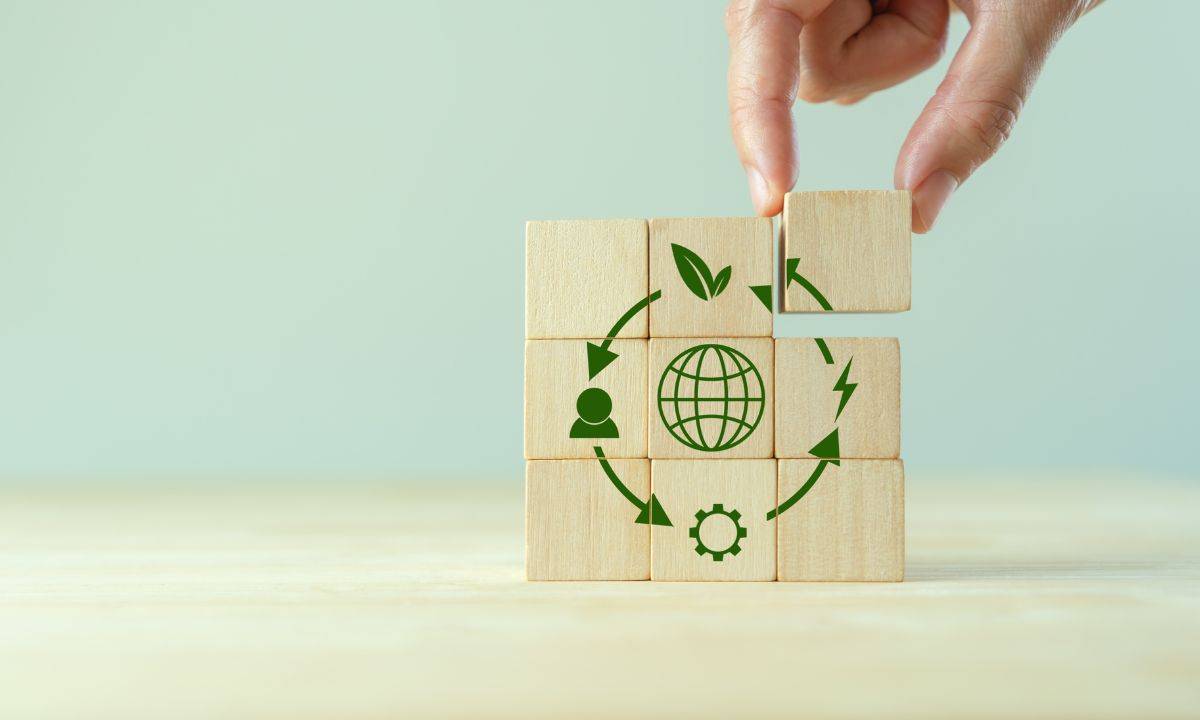
Photo credit: Shutterstock
Earth, you rock! In this special shout out to the planet we bring you the very latest steps taken by Alibaba Group to protect our home.
This week, Alibaba promised to make nine green data center patents freely available, including designs for liquid cooling machines and hard drive power regulators.
In other news, Southeast Asian e-commerce platform Lazada is cutting down on plastic waste after launching this week a vertical to spotlight sustainably-packed products.
But that’s not all! Food delivery service Ele.me unveiled a point system on Wednesday based on users’ carbon consumption to promote a low-carbon lifestyle.
These measures build upon an ecosystem-wide push by Alibaba to combat climate change.
Last year, Alibaba pledged to reach carbon neutrality by 2030 as it reins in emissions across its operations amid a global push to tackle climate change.
By working with merchants and consumers across its ecosystem, Alibaba said it would slash carbon emissions by 1.5 gigatons across its digital ecosystem by 2035, making it the first major platform operator to set such a target.
Check out our sustainability hub to see how Alibaba is getting to the root of climate change.
The More, The Greener: Alibaba Shares 9 Patents with World
Alibaba will make patents for green data centers available to the public as part of a joint pledge for patent-sharing for low-carbon technologies.
This week, the Hangzhou-based company announced that it had joined the Low Carbon Patent Pledge, an initiative launched on Earth Day 2021 by Hewlett Packard Enterprise, Microsoft, and MM.
“We are excited to join the pledge as a way to encourage a collective approach to build a sustainable and inclusive future for the society and environment,” said Dr. Chen Long, Vice President of Alibaba Group and Chair of Alibaba’s Sustainability Steering Committee.
The nine patents made available by Alibaba are part of its green data center technologies, including liquid cooling systems and technologies for controlling hard drive power consumption.
The International Energy Agency estimates that data centers will consume around one-fifth of the world’s power supply by 2025.
Alibaba’s liquid cooling system is critical to its data centers’ sustainable operations. By submerging server motherboards in liquid coolant, the system can slash energy consumption by over 70% of compared with traditional mechanical cooling.
The company is one of ten organizations pledging to offer free access to more than 500 patents to accelerate the adoption of low-carbon technologies.
Trash Talk: Lazada Launches Campaign to Reduce Plastic Waste
Alibaba’s flagship e-commerce platform in Southeast Asia, Lazada, launched a campaign on Monday to reduce plastic waste in products and packaging.
The region generated over 31 million tonnes of plastic waste in 2016, according to the ASEAN Regional Action Plan. Lazada hopes to pare this back by highlighting more than 70 brands and 5,000 consumer products made, packed or shipped with less plastic.
“As digital commerce continues to be one of the key growth drivers in Southeast Asia, it is crucial for companies to place sustainability at the core of their strategies to build stronger and greener economies,” Lazada Group’s Chief Strategy Officer, Magnus Ekbom, said in a statement.
Across Southeast Asia, 91% of consumers are concerned about plastic waste, according to SEA Circular, an initiative of the UN Environment Programme and the Coordinating Body on the Seas of East Asia (COBSEA).
Lazada launched a separate initiative called Easy Green with British multinational company Unilever, starting with a three-year partnership to help digital customers to identify and purchase sustainable products.
May the Forest Be With You! Ele.me Unveils Point System to Promote Low-Carbon Lifestyle
On-demand food delivery platform Ele.me rolled out a point system this week to track users’ carbon consumption to promote low-carbon lifestyles.
Consumers will earn points when they avoid plastic tableware, don’t ask for extra small dishes and observe other eco-friendly habits when ordering food. The points can be spent within the platform or donated to forestry conservation efforts.
“The future of carbon neutrality relies on digitalization and a green and low-carbon economic system,” Shuixian Xiao, Senior Vice President of Ele.me, said in a statement.
As of the end of February, the platform has delivered 1.06 billion orders without cutlery, equivalent to eliminating 16,900 tonnes of carbon emissions, according to Ele.me.
Green Brands See Opportunity in China as Sustainability Trends
Chinese consumers are scouring online platforms for sustainable products as awareness of climate change grows. For green brands, this trend presents an opportunity to showcase their wares.
“We see business opportunities to co-create a more sustainable future with our merchants and brands,” e-commerce platform Alibaba Group’s Chief Marketing Officer Chris Tung said on Tuesday during a webinar.
In China, 72% of consumers said they try to buy from environmentally responsible companies versus 54% globally, according to a survey by consultancy PWC.
To be sure, parsing ingredients lists for toxins and examining supply chains for carbon emissions can bewilder consumers.
Alibaba is working to bridge this knowledge gap with a range of interactive features that make a sustainable lifestyle more accessible for consumers and bring their product research to life.
Get the green goss here
Digital Circular Economy Critical to Tackling Climate Change: Think Tank
Climate policymakers are scrambling to find ways to slow global warming, and so far, efforts have focused on replacing fossil fuels.
But researchers at Alibaba’s Luohan Academy have come up with a fresh approach. In a report published this week, they argued that we should move to decarbonize consumption through digitalization and circular business models.
Luohan coined the phrase a “digital circular economy” (DCE) as a framework for future research and practices in climate mitigation, resource conservation and the pursuit of sustainability.
“The DCE framework has strong potential to support decarbonization efforts,” said Long Chen, Vice President of Alibaba Group and Chair of Alibaba’s Sustainability Steering Committee.
Suppose governments adopt the framework and principles of a digital circular economy.
In that case, they will have a far greater chance of achieving carbon net-zero by 2050, a target set by the Intergovernmental Panel on Climate Change, the United Nations’ panel that establishes scientific consensus on this subject.
Click here to learn more
Every day is Earth Day at Alibaba. On this international day of awareness, we invite you to explore how we put the environment first and how you can too!




